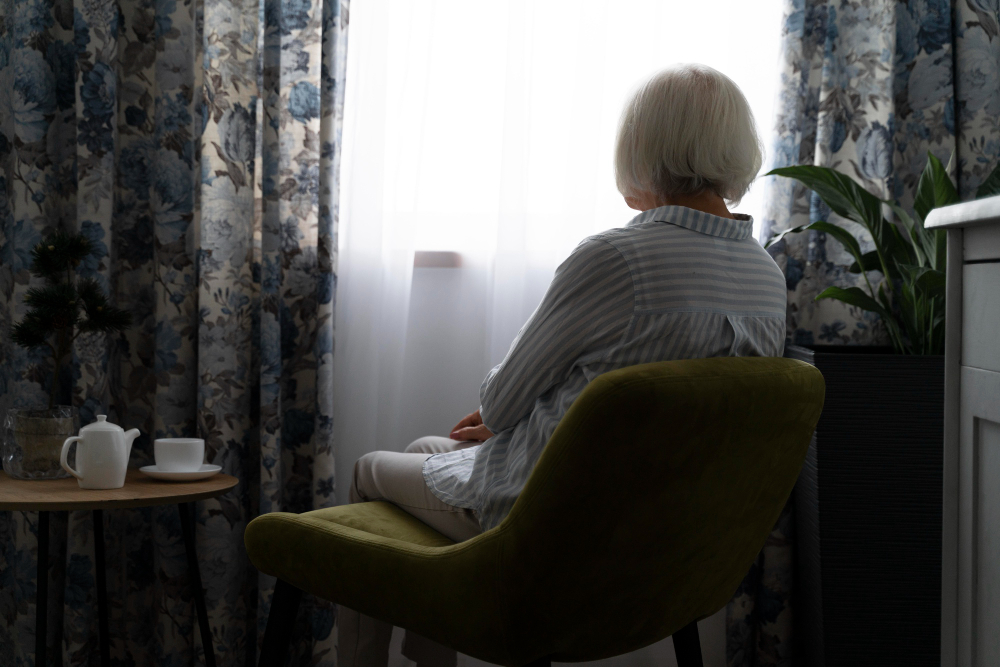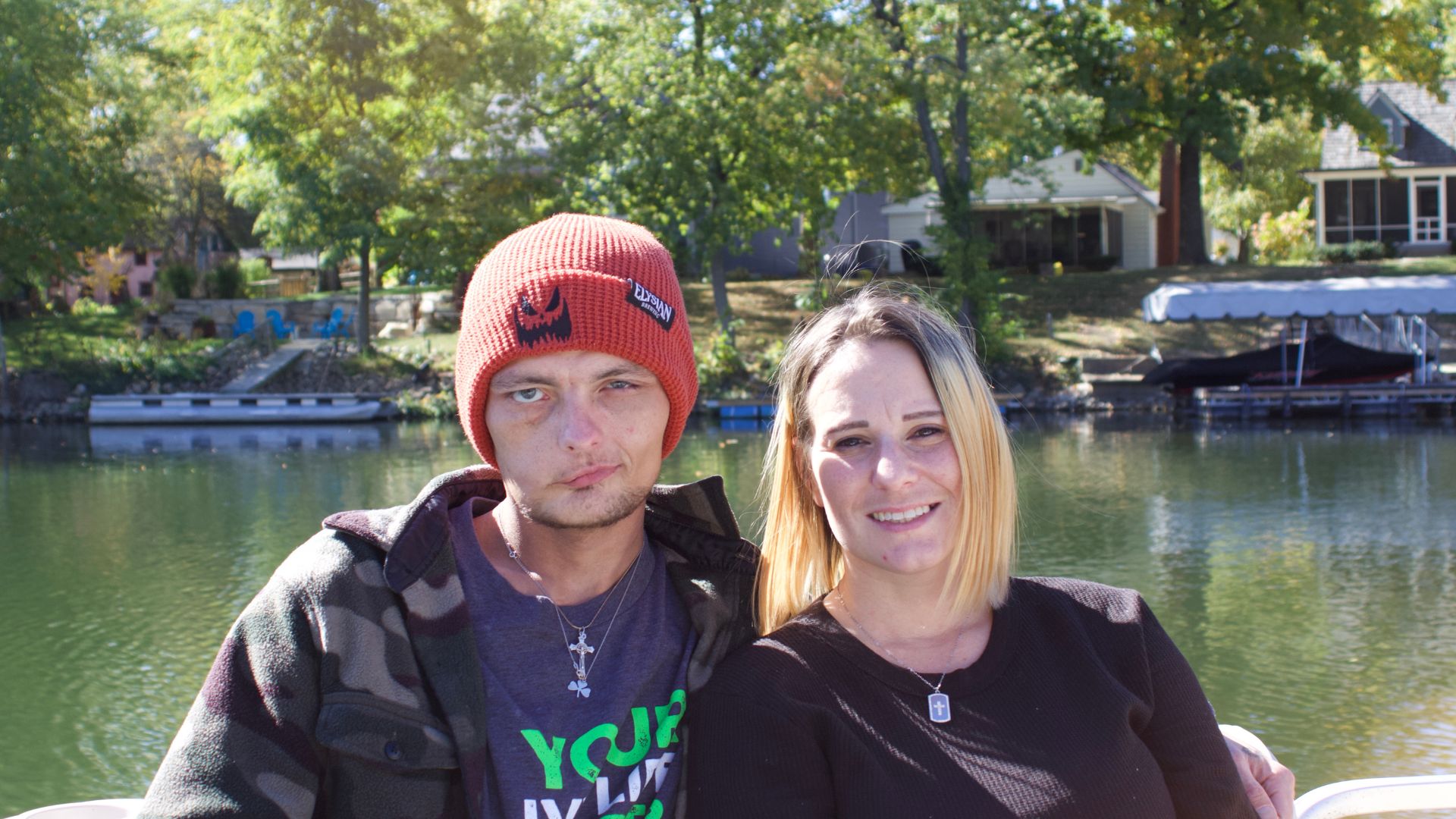Our Home runs on community support! Help hospice patients in need – donate today.
Self-Care for Caregivers: How to Avoid Caregiver Burnout

Whether you’re a professional care assistant or an informal caregiver at home, sustainable and compassionate caregiving starts by taking care of yourself. Use these important self-care tips to reduce caregiver stress.
As a caregiver, you likely have a compassionate, empathetic, and other-focused heart by nature. You dedicate your time and energy to helping others live comfortably and happily.
But what about yourself?
For many formal and informal caregivers, it can be very challenging—both practically and emotionally—to prioritize taking care of yourself. Yet self-care for caregivers is where compassionate and effective care truly begins!
Learn how to avoid caregiver burnout by treating yourself to the same care you give others.
What Is Caregiver Burnout?

Caregiver burnout is a state of exhaustion due to the many physical, mental, emotional, and spiritual burdens of providing care for another person. Burnout is not just a feeling—it is often an embodied state where you feel just as physically drained as you do mentally and emotionally.
Burnout often feels like running out of steam, like a complete lack of energy, motivation, and empowerment. When taken to its extreme, burnout (and its associated feelings of guilt, helplessness, and despair) can lead to more significant and longer-term issues such as depression.
If you think of yourself as a cup of water, caregiver burnout is when you’ve poured it all out and there’s nothing left to continue giving. Or if you think of yourself as a smartphone, you’ve reached the end of your battery life and there’s nothing you can do but power down until you recharge.
Causes of Caregiver Burnout

No matter who you are giving care to, caregiving is a difficult job requiring long hours, constant engagement, and a variety of physical and emotional tasks. It’s no surprise that burnout is so common!
There are many contributing factors to caregiving burnout, but here are a few of the most common:
- Lack of support network, especially of others going through a similar experience
- Long hours of constant engagement and the need to be “on”
- Challenging temperament or complex relationship dynamics between the caregiver and the person being cared for
- Feelings of caregiving as an obligation or burden (and corresponding feelings of guilt for those feelings!)
- Lack of financial support to help pay for caregiving labor or to make up for lost income, resulting in money-related stress
- Feelings of isolation as the caregiving role reduces free time for hobbies or social outings
- Difficulty separating the role of caregiving from other roles, such as spouse, parent, or child
- Caregiver’s lack of awareness or monitoring around their own mental, physical, and emotional state
For caregivers of people with a chronic condition or in hospice care, another layer of emotional complexity is the fact that caregiving will not heal the person.
It is a palliative exercise at best, which, though very important and absolutely worthwhile, can begin to feel hopeless in our darkest moments. And hopelessness is a quick and slippery slope to burnout.
5 Tips on How to Avoid Caregiver Burnout
It’s important to distinguish between caregiver stress and caregiver burnout. As a caregiver (and as a human being in general!), stress is impossible to avoid. But burnout can, for the most part, be prevented.
Here are some general tips and self–care ideas for caregivers.
1. Be Kind to Yourself
We’ll say it again: caregiving is a difficult job! All the more so because it can be such a personal and private matter.
When it comes to self-care for caregivers, one of the best tips is to give yourself grace. Be kind to yourself by:
- Acknowledging that it’s okay (and 100% normal!) to feel frustration, resentment, guilt, or any other negative emotion while you give care
- Accepting your own limits and not pressuring yourself to “be there” 24/7/365
- Being realistic about your loved one’s condition and what, if anything, your caregiving can realistically achieve
- Giving yourself permission to take breaks from caregiving
- Acknowledging that you are doing the best you can in a very difficult situation
2. Find Someone to Talk To
Sharing your experience as a caregiver can help lighten the emotional burden and make you feel less alone. Seek out potential sources of support in your community:
- A trusted friend or family member
- A caregiving support group
- A member of your religious group or house of worship
- A family counselor
- A professional therapist
- A physician
3. Prioritize Your Own Health
It’s all too easy for caregivers to forego their own health concerns in order to be more present for the person they’re caring for. But this is a strategy that only works in the short term!
Think about it like this: you can only give what you have. If you aren’t in a healthy physical or mental state yourself, there’s less to give.
Look after your own physical, mental, emotional, and spiritual health by doing whatever it is that brings you nourishment. This might be:
- Attending social gatherings
- Going to religious services
- Taking short trips away
- Praying or meditating
- Maintaining a regular exercise routine
- Prioritizing healthy meals
- Visiting the doctor for regular checkups
- Pursuing artistic endeavors
- Volunteering
4. Monitor Your Status
The best way to avoid caregiver burnout is to be vigilant for its signs and symptoms—allowing you to take some preventative measures before it really hits.
A couple times a week, ask yourself how you’re doing. Make it a habit of checking in, even asking yourself aloud if that’s helpful.
Be on the lookout for the common signs of caregiver burnout, including:
- Trouble sleeping
- Fatigue
- Loss of interest
- Loss of motivation
- Unusual changes in appetite, eating habits, or body weight
- Anxiety or worry
- Irritability
- Mood swings
- Stomachaches, headaches, or other bodily pains
5. Seek Help and Respite If Possible
An important aspect of self-care for caregivers involves recognizing when you can’t do it all yourself. Asking for help from others isn’t a weakness—it’s one of the only ways to give care sustainably over a long period of time.
There are lots of options for help depending on your comfort level, where you live, and your financial support options:
- Asking a friend or family member for help with small tasks
- Asking a family member to rotate days or hours of care
- Hiring a spot caregiver or part-time care assistant from a health home agency
- Finding an adult day care or day service
About Morning Light’s Respite Care Service

Did you know? If you’re a caregiver in Indianapolis, Morning Light offers a respite care service in our Abbie Hunt Bryce Home!
On a space-available basis, we welcome clients into our Home so that their primary caregivers are able to take a break from caregiving. Our residents enjoy a beautiful campus with a private garden, home-cooked meals, and round-the-clock supervision.
To inquire about our Indianapolis respite care, please visit our respite care page and fill out our online form.



